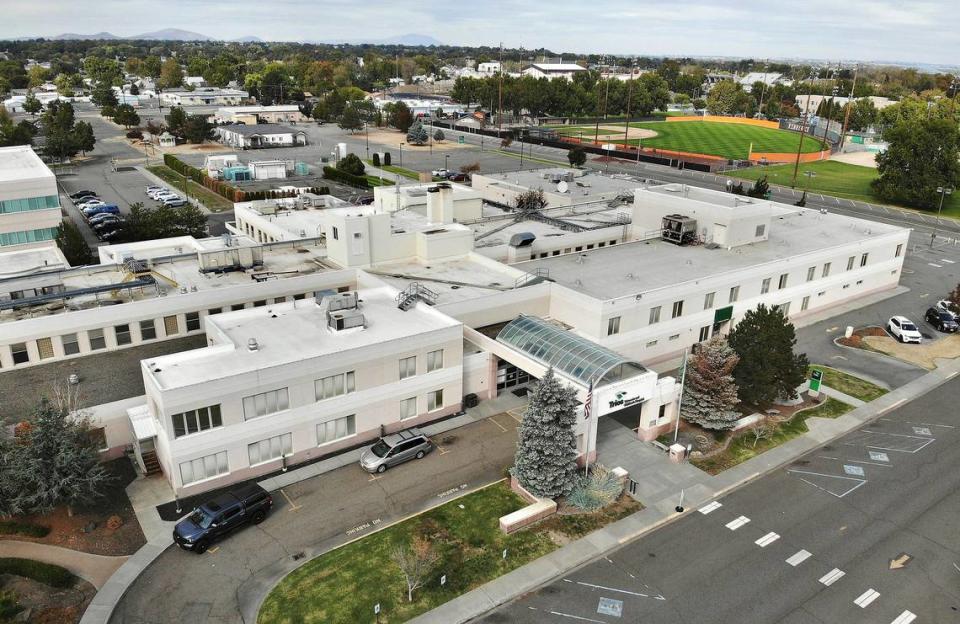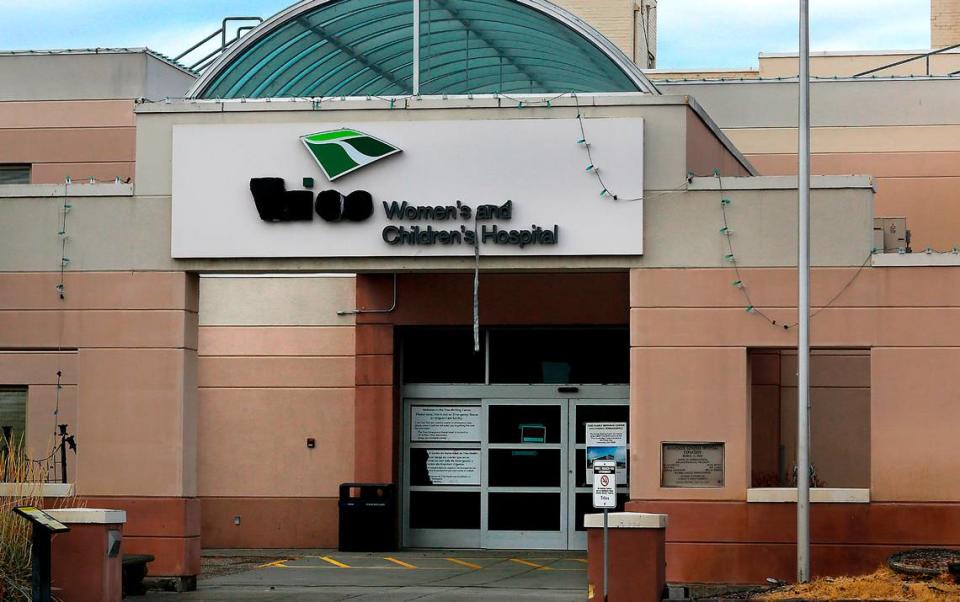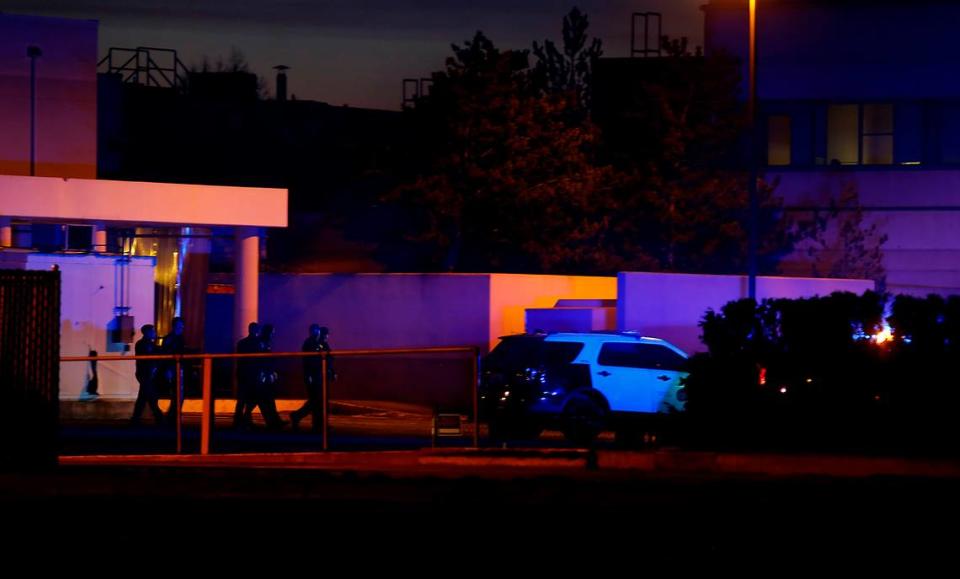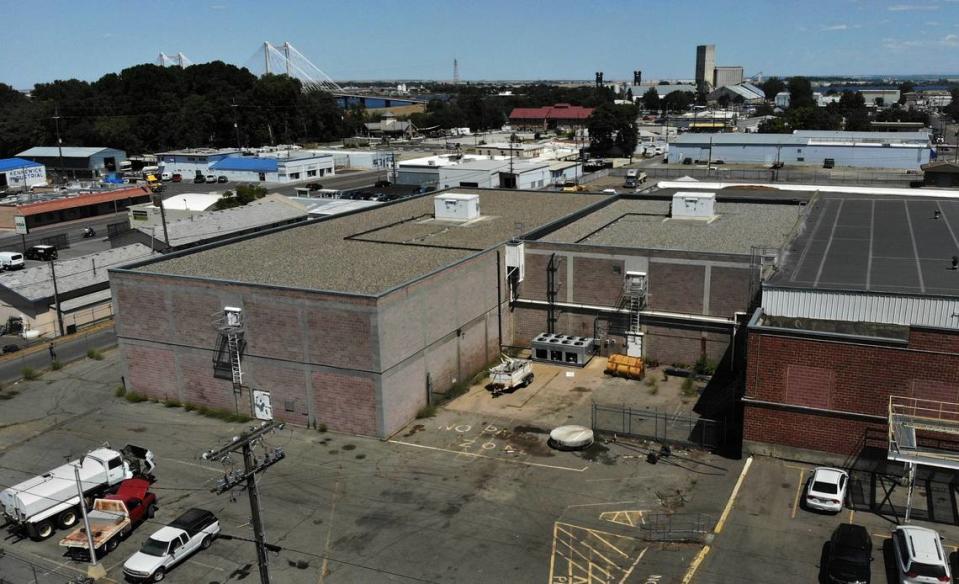Tri-Cities first addiction recovery center plans taking shape. What will it cost?
As contractors work to finish proposals for the build-out of the Tri-Cities’ first public recovery center, a clearer picture has emerged of what it’s going to take to get the center up and running.
The Benton Franklin Behavioral Health Advisory Committee was recently given a look at preliminary options for the future regional recovery center — the Columbia Valley Center for Recovery.
With those options being discussed, one key element has been narrowed down — which facility will host the services.
Benton County Deputy Administrator Matt Rasmussen told the Herald that the committee is now looking toward finalizing plans for the build-out and making up any difference in costs between what has been set aside and the top end of estimates.
“I think we’ll see some progress on construction and some hammers being swung this year, and we’ll have the dollars figured out in time,” Rasmussen said.

Deciding on a home
In late 2022, Benton County bought the old Kennewick General Hospital building at 900 S. Auburn St. for $1.6 million, but soon ran into potential issues with restrictions in the deed that would limit the length of in-patient treatment they could offer at the 70-year-old building.
Last summer the county bought a second building about a mile away as a potential option for the center for $4.8 million. It was a warehouse at the former Welch’s Juice Plant, at 10 E. Bruneau Ave.
They had previously been leasing it, but were offered a savings of about $2 million over the 25-year term of the lease. The county took the owner up on the offer, in part because many of the grants the center would be eligible for would easier to obtain by owning the buildings.
After bringing on Comprehensive Healthcare as their treatment provider and deciding on a contractor for renovations, the county is likely to put all services into the old KGH building, which they’re now just calling the Auburn Campus to clear up confusion about its current ownership.
The facility is commonly referred to as the “old KGH building” though it last served as the Trios Birthing Center before closing its doors in early 2022.
Bouten Construction Company was awarded the contract for the design-build scope of the project. That type of process allows for the company to build out sections of the facility while still working on later portions of the design.
That means they could choose to do certain sections first, starting work while other more involved portions of the facility are still being designed. For example, they could get started on a much-needed mechanical overhaul of the aging building while still designing the other portions of the renovation.
Rasmussen said that the Auburn street facility became the front-runner once it became clear just how much work it would take to get both buildings in shape for services. He said running a two facility format would likely cost an additional $6.5 million, and Bouten believes the Auburn Street building is the best option for a single site.
They’re also working on finding a potential solution to the deed restriction on what services could be offered at the old KGH building.
“There was a restriction in the deed for a specific service, crisis stabilization, where we can’t have someone in that service for more than 72 hours, but based on the cost (to build out both facilities), we’re working with our provider within that limitation.”
Rasmussen said the county and Comprehensive are going to go back and discuss with the former owner, LifePoint Health, to see if they can get support to reconsider that restriction, noting there has been a change of leadership in the year and a half since the sale. LifePoint, which owns Trios and Lourdes, had placed a restriction that essentially barred the county from using the building to host competing services.
He said Comprehensive also believes they can make the services work within the restrictions if needed.

Rasmussen said contractors have put the high end of preliminary estimates for the build-out at around $28 million. The county has $21 million set aside, and they’re looking at going after state and federal funding to make up the difference if necessary.
That $21 million is largely from grants, Rasmussen told the committee at its most recent meeting. It includes some American Rescue Plan funds earmarked for the center, but not ongoing payments from opioid lawsuit settlements and the 0.01 cent sales tax dedicated to recovery services.
Gov. Jay Inslee is asking the Washington legislature for nearly $500 million to boost mental health, addiction treatment and recovery initiatives this year as part of his $70 billion supplemental budget request. Rasmussen said they plan to ask for about $1.5 million from the state this year.
He noted that the $28 million price tag is the top end of the estimates, with a high contingency level. They should have a better idea once the contractor has finished an evaluation of the building’s mechanical systems.
There is a question mark hanging over the condition of those systems after the county spent about a half million dollars last year cleaning up the property and securing it because vandals had broken in and caused extensive damage.

Vandals and burglars were causing an estimated $3,000 to $4,000 per day stripping copper pipes, causing flooding, triggering fire extinguishers and breaking cabinets. After breaking 15 windows and five doors, the county moved to board up the windows to prevent further damage.
From the outside, not a lot will change. It’s the interior work that will be needed to turn it into a modern behavioral health and recovery center.
“We have some idea of the things that are necessary, the biggest issues are the HVAC and the life safety, those are all old. The building is generally structurally sound, but those all likely need to be replaced,” he said. “We’ll need to reconfigure interior walls, better windows and modern lighting.”
They could also add separate entrances in order to compartmentalize each of the four main recovery services.
The facility will be used for crisis stabilization, secure withdrawal and 23-hour observation services. The fourth service, in-patient residential treatment will also be hosted there, but what shape that takes will depend on whether they’re able to renegotiate the deed restrictions.
The county will also have to start from scratch on landscaping because the irrigation was turned off at the facility before they purchased it, leading to dying trees and failing lawns. In recent months maintenance crews have worked to clean up the outside of the facility and its grounds, while crews began assessing the damage inside.

The other facility could still be used for behavioral health services in the future, Rasmussen said. The county could also find another use for it, but the $5 million purchase of the building came from county capital funds, so it doesn’t impact the money allocated for building out the recovery center.
While they have received some feedback from the contractor, Rasmussen said it’s still too early in the process to determine when they’ll begin to see services coming online.
Other efforts
The committee is also continuing to work on several other initiatives. They’re hoping to open a sobering center in Pasco in conjunction with Lourdes, which could be up and running well before the rest of the recovery center.
Additionally, they’re working on assessing the feasibility of teams of crisis responders that would work alongside EMTs and police for mental health and addiction related calls.
Rasmussen also said they’ll be working on a branding package for the Columbia Valley Center for Recovery to help spread awareness of the future recovery center’s mission.

